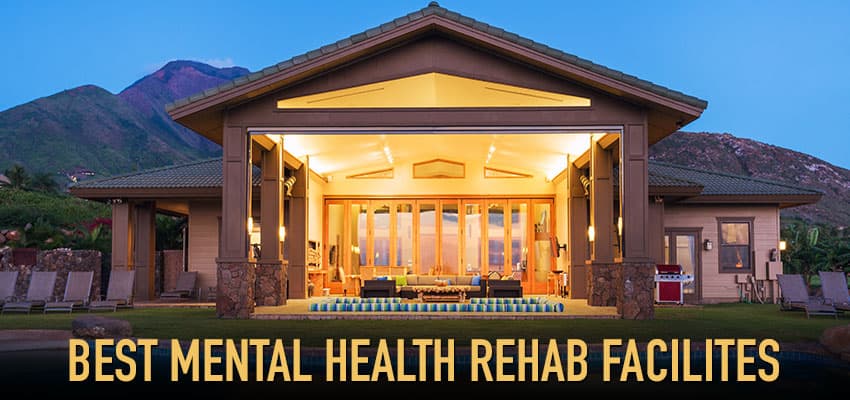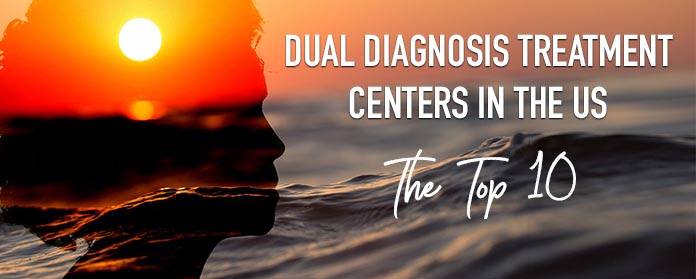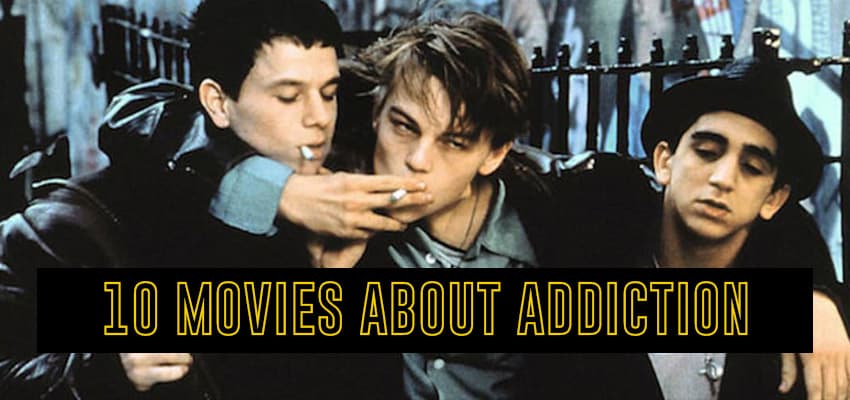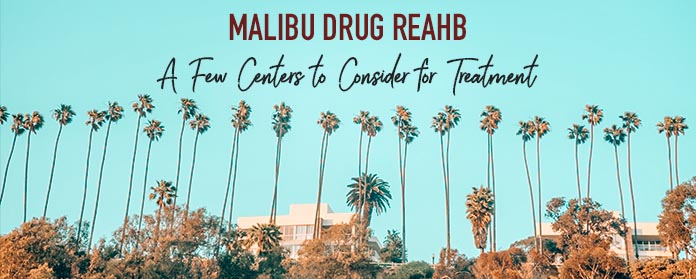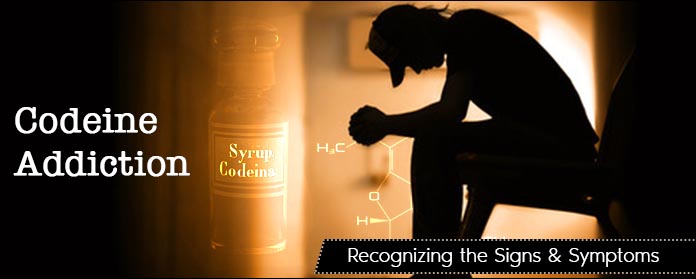Below is a compilation of some of the best mental health rehabs in the world.
Mental health is a very important aspect of health. It impacts your life either negatively or positively regardless of your sex, age, ethnicity, and income. It can be generalized as more of the absence of a disability or a mental disorder.
“Don’t let your struggle become your identity”
The link between mental health and physical health is inarguably fundamental. It is in fact proven that most psychological disorders have physical roots. Disruption of either affects the balance hence lowering the quality of life. For example, persons suffering from depression are normally at risk of suffering from chronic physical disorders such as stroke.
So, it is safe to say that in as much as you attend your gym regularly, you should also ensure you tend to your mental health. Begin by checking whether you are happy, head on to adding daily affirmations i.e., I deserve Happiness, I will take care of my body, mind, and spirit, etc. This way you get a chance to achieve your psychological resilience.
We all at one point or another go through a mental health breakdown, especially during a stressful situation. However, the severity of it (mental illness) is said to occur when the signs and symptoms, as well as the stress, get frequent thus affecting the ability to function as per your norm.
Healing from this may require the input of professionals from top-tier inpatient mental health facilities. Luckily, this article has that, and more additional information you might be looking for in regards to your loved one or even your mental health.
Best Inpatient Mental Health Facilities

All Points North Lodge
Vail Valley, Colorado, United States
All Points North Lodge is a comprehensive wellness and personal development campus specializing in addiction, trauma, and mental health.

Wellness Resource Center
Boca Raton, Florida, United States
Located near Delray Beach, Wellness Resource Center is a private rehab offering a 12-Step and holistic treatment approach for addiction and co-occurring disorders.

J. Flowers Health Institute
Houston, Texas, United States
J. Flowers Health Institute provides personalized, concierge care, with no group therapy, for busy professionals, adolescents and young adults, and highly complex individuals.

Soberman's Estate
Cave Creek, Arizona, United States
A world class 5-acre estate with a maximum of 10 male clients offers all services onsite (including equine therapy), privacy, and individualized treatment plans for adult men.

The Balance Luxury Rehab
Mallorca, Spain, Europe
The Balance is a premier luxury rehabilitation center for addiction and wellness with a one client at a time approach.
What is Mental Health?
Just like physical health, mental health is in all humans. It is the state of your mind, emotions, and feelings. In simple terms, mental health is the psychological, social, and emotional well-being of a person. It’s responsible for affecting the way one thinks, acts, and feels.
Are you a social being? How do you handle your stress? Do you think you make healthy decisions? —well, all these questions are determined by your mental health.
Most people tend to interchange the words poor mental health and mental illness. The two are completely different. While mental health is the complete absence of a disorder or illness, mental illness entails disorders that affect how we think, feel, or behave. A victim of poor mental health may not be diagnosed with any type of mental illness. similarly, a person with mental illness may have good mental health (mentally, socially, physically).
Factors affecting mental health
A person’s mental state is dependent on a couple of factors. More so, it is likely that a combination of these factors could cause mental health problems. When this occurs, the person may get affected more by one of the factors than the others. For example, when one person suffers from childhood abuse and at the same time starts alcohol or drug abuse, then the latter becomes the real stress dominating the actual event.
Here are more factors affecting mental health:
- Loneliness or social isolation
- Prolonged physical health condition
- Domestic violence
- Trauma and neglect
- Poverty and debts
- Bereavement
- Discrimination and trauma
- Losing your occupation
- Physical causes i.e., epilepsy which affects your mood and behavior
- Lifestyle i.e., lack of sleep
Biological risks such as genetic factors where the genes are passed on from the parent to the offspring can also make one vulnerable to mental health problems. However, it hasn’t been ruled out which exact gene causes it. A good example is a schizophrenia disorder (discussed below). This condition is more likely to be developed in children of the victims. And although genes are the main culprits, other factors such as the environment the child grows up in and the behaviors, they learn from the victimized parents may cause this.
All these factors are vital in shaping one’s mental health.
Common mental health disorders
Mental health disorders are the most common health condition worldwide and more especially in the United States. Sadly, even children are a part of this gap (1 in every 5 children ). Thus, it’s important to note that these disorders are treatable if you get the right mental health treatment centers. And just like any other disorder, an early diagnosis prompts early treatment thus preventing further complications.
Anxiety disorders
This is the most common type of mental illness affecting 18.1% of the Us population. It is basically the dreadful or fearful response to certain situations and things. And in most cases, the victim avoids the triggers. There are several types of anxiety ie:
- Panic disorders- These disorders cause panic attacks which are generally terrors of things that might happen ie death.
- Generalized anxiety disorders (GAD)- Excessive worry that is difficult to control and may have a huge negative impact on one’s life. This type of anxiety disorder may present itself without the presence of a trigger. GAD’s physical symptoms may include restlessness, fatigue, interrupted sleep, and tense muscles.
- Obsessive-compulsive disorder (OCD)- the disorder features obsessions or fears that make one have repetitive behavior or compulsions. The obsessions may include, extreme cleaning, washing hands, etc.
- Phobia- These are personal disorders that dominate one’s daily life. Examples are:
- Social phobia: this is the dread of being a topic of judgment to others. People with this type of phobia restrain from being in social environments.
- Simple phobias: These are the fear of specific things i.e., spiders, etc.
- Agoraphobia: This is a commonly misunderstood phobia. It is often thought to be fear of going outside while it’s more complex. It’s the fear of a situation in which escaping becomes difficult.
Depression
Also known as mood disorder, It is the continuous fluctuations of moods— most especially sadness—affecting approximately 280 million people in the world according to WHO. The mood changes involve either mania or depression which causes mood loss. The most common symptoms of depression are lack of motivation, feeling of emptiness, etc. These symptoms may force one to opt for drugs that act as a relief for a short-lived period. And once this happens a dual diagnosis (to be discussed below) is ruled out.
Some of the common depressive disorders are:
- Bipolar disorder: The victim experiences abnormal mood changes, levels of activity, energy level, and worse still the ability to function as per their norm. It is characterized by manic phases i.e. racing thoughts, exaggerated behaviors, etc., and a depressive phase which brings about low moods.
- Major depression: This type of depression is characterized by periods of extreme sadness to which the victim loses the interest to engage in any activity or event that they enjoyed prior.
- Seasonal affective disorder (SAD): Whenever there is a change in season, a SAD victim suffers from fluctuations in moods. The seasons that are likely to affect this are fall and winter and are less often in the early summer and spring.
Sadly, if depression isn’t keenly checked at depression treatment centers, it may advance to the extent of the victim committing suicide. So, if you or your loved one are suffering from any of the depression types, head on to inpatient mental health facilities for close monitoring.
NB: Depression is treatable.
Schizophrenia disorders
This serious disorder is commonly known for causing disabilities. It is a condition in which the victim interprets reality abnormally. This then results in positive symptoms such as disordered thinking, hallucinations, and delusions and negative symptoms that include unmotivated, withdrawal, and inappropriate mood. Schizophrenia disorder is a complex condition that professionals haven’t yet ruled out whether it’s a group of related illnesses or just a single disorder.
According to research done by NIMH, the conditions begin showing their symptoms between the age of 16 and 30 years to which the victim finds it hard to actually process information, as well as having fragmented thoughts.
It’s highly important that the victim of Schizophrenia disorder gets early treatment from mental health rehabs before the symptoms go out of control.
Eating Disorders
Eating disorder is more than the food. It’s a range of mental conditions that prompt the development of unhealthy eating habits. It starts with food, body shape, or bodyweight obsession. Factors causing this disorder include genetics, personality traits, peer pressure, and cultural preferences.
A condition for only a teenage girl? —No! Its most prevalent among them but anyone can suffer from this.
It affects at least 9% of the population of the world and may result in the death of over 10,200 people each year when left untreated. Common types include:
- Anorexia nervosa- It affects females more than men and mostly develops during young adulthood or adolescence. It entails the victim considering themselves overweight even though they are dangerously underweight. They tend to monitor the food they ingest and restrict their calories so that they don’t add weight.
There are two ways to categorize Anorexia: Purged and. Each entails the consumption of little or so much food and after its ingested its purged through vomiting or excising heavily. The severity of this may result in heart, multi-organ, or brain failure or worst still death. In milder or less fatal cases, results may include brittle hair and nails, infertility, and thin hair.
- Binge eating- This is a common disorder in the US and involves the intake of large amounts of foods in a short period of time. It is a rare type since is usually done in secret.
- Bulimia- This is basically overeating to your maximum. And for fear of adding weight, you end up using laxatives or forcing vomit. The outcome may include rapture of the stomach lining; hence it is extremely important that one seeks help from a treatment center for mental health.
Related: Best Dual Diagnosis Treatment Centers
Mental Health Rehabs, Diagnosis and Treatment
Since there isn’t a scan that can perform mental health diagnosis, the mental health professional may look for related complications. They may either, take a physical exam to rule out if any physical problems may be causing the symptoms, ask for a lab test that checks the alcohol or drug intake but most importantly the thyroid function. And lastly, perform a physical evaluation where you may be required to fill a questionnaire to help them understand the situation.
The diagnosis is better done early. So here are some of the early signs and symptoms to look for:
- Unnecessary yelling with friends and family
- Too much or too little sleep
- Feeling like you don’t care
- Lacking or having low energy
- Venturing into drug abuse is far from the usual
- Recurring memories that are hard to forget
- Feelings of confusion, worry, scared, forgetting, on edge, upset or angry
- The feeling of helplessness or hopelessness
- Weird pains and aches
- Severe mood swings
- Trying or thinking of harming yourself or those close to you
- Hallucinating
- Becoming unsocial
Once the diagnosis is done the mental health practitioner uses the Diagnostic and Statistical Manual of Mental Disorders (DSMS-5) to rule out the type of mental illness at hand. This here is the main reason you should always seek the best treatment center for mental health.
Treatment Center For Mental Health
The treatment method offered usually depends on the mental health disorder you are suffering from. But in most cases, a combination of the treatments is preferably used. The mental health rehabs will have a team that will ensure your medical, psychiatric, and social needs are well met.
The treatments available include:
- Medications- Antidepressants, Anti-anxiety, mood stabilizers, and antipsychotics are some of the medications that may be administered depending on the type of mental illness. These medicines don’t cure mental illness but instead, they improve the symptoms and make other treatments such as psychotherapy more effective.
- Psychotherapy- This is a talk therapy in which you tell the professional about your condition. This helps you learn more about your disorder or situation thus making it easy for you to manage it on your own.
- Brain-stimulation treatments- This is the treatment reserved for cases where the latter two don’t work. Electroconvulsive therapy, deep brain stimulation, vagus nerve stimulation, and repetitive transcranial magnetic stimulation are some of the treatments. However, it’s important you understand the risk and benefits brought by this treatment.
- Residential treatment programs- these have opted in situations where the victim can’t take care of themselves properly and are at risk of causing harm to themselves or others. An inpatient mental health facility is the best for such cases.
- Dual Diagnosis treatment- In most cases, mental health occurs along with substance misuse. And this interferes with the treatment making the illness worse. It is vital that the two get addressed simultaneously in mental health rehabs. And ensure you tell your doctor about the addiction so that the treatment may work.
